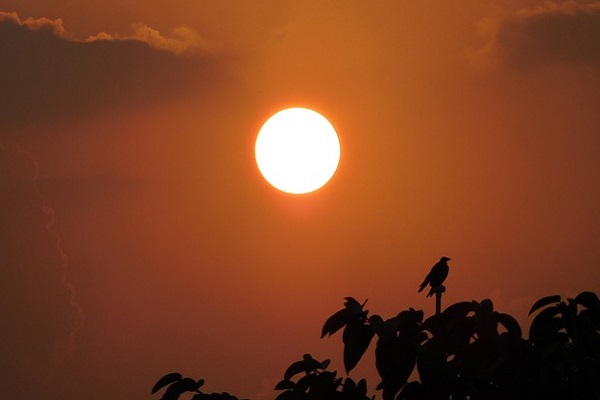
Is it Suicide? Protest in India over Banning the Religious Practice of Santhara
- By Gary Nguyen --
- 26 Aug 2015 --

India’s High Court ruled on banning the Jain Santhara spiritual purification and achievement of Moksha through fasting until death.
On August 10, 2015, the Rajasthan High Court in India ruled the banning and criminalization of the Santhara, a unique religious practice performed by members of the Jain religion. The ruling also makes those who abetted, supported or caused what the court calls “suicide” criminally liable. In response, thousands of Jains protested on August 24 condemning the decision which according to them undermines their religious rights.
Jains Hold Massive SILENT Protests in Surat, Gujrat 4 Santhara!
Compare Wid Politically Motivated HardikPatel's Rally pic.twitter.com/z6Vu9slZt2
— Mahaveer (@MahaveerM_) August 25, 2015
Santhara is the ritual of fasting to death among Jains. Compared to ordinary fasting, those who observe this practice is deprived of any food and beverage including water 24/7 and such ritual will last until they eventually die out of weakness and hunger.
According to Jain gurus, the ultimate objective of the ritual is the member’s spiritual purification and the achievement of the “moksha” state. The Jains are also firm believers of reincarnation and achieving “moksha” means freedom of the soul or spirit from the unending cycle of being born and dying. Members who commit themselves to the ritual are usually those who are already old or sick or what the Jains refer to as an “irretrievably broken down body.”
Jain Raksha Samaj moves Supreme Court against court order terming Santhara, a ritual of fasting until death, illegal.
— NDTV (@ndtv) August 25, 2015
The practice may sound as taboo but the Jains believe that it is better for a member to see or decide on his/her death, have the opportunity to purify his/her spirit than to die suddenly from illness or accident. Relatives of the person who died after observing the ritual are prohibited from crying because the faith believes that the person has moved into a better and higher spiritual state.
400 Jains have already died through Santhara in the last seven years. Across India, members of Jainism are estimated to be at around 4 million. Similar to mainstream religions, there are also sects within Jainism. One of the most notable among the sects is Kutchi Visa Oswal. The practice of Santhara within this sect can be considered as extreme because when a member eventually dies from the ritual, somebody from the community will become the next person to commit to Santhara. The “fasting to death” does not end within the sect. According to Manish Gala of the Kutchi Visa Oswal Sangh, 1000 Kutchis have already perished from Santhara in the last 20 years.
Why Thousands of Jains Are Fighting For the Right to Fast Until Death: Thousands of Jains protested across Ind… http://t.co/mc2ZkAERw6
— Ritu Agrawal (@Queen_Ritu) August 24, 2015
The court case that lasted almost a decade was filed by human rights activist Nikhil Soni in 2006. In India, suicide is considered a crime and Soni argued that the practice of Santhara is tantamount to suicide.
Jain guru Acharya Dr. Lokesh Munisagar defended the religious practice saying that “Santhara has nothing to do with suicide. On the contrary, it’s a blessing for those who can undertake it.” Jain lawyer Pana Chand Jain added that “This is not suicide, because suicide is impulsive. This is an action taken with a conscious mind, with permission of family and of gurus. It’s not secretly done. It is a religious practice.” Lawyers and Jain leaders will seek for the reversal of the August 10 ruling by making an appeal at the Indian Supreme Court.



















